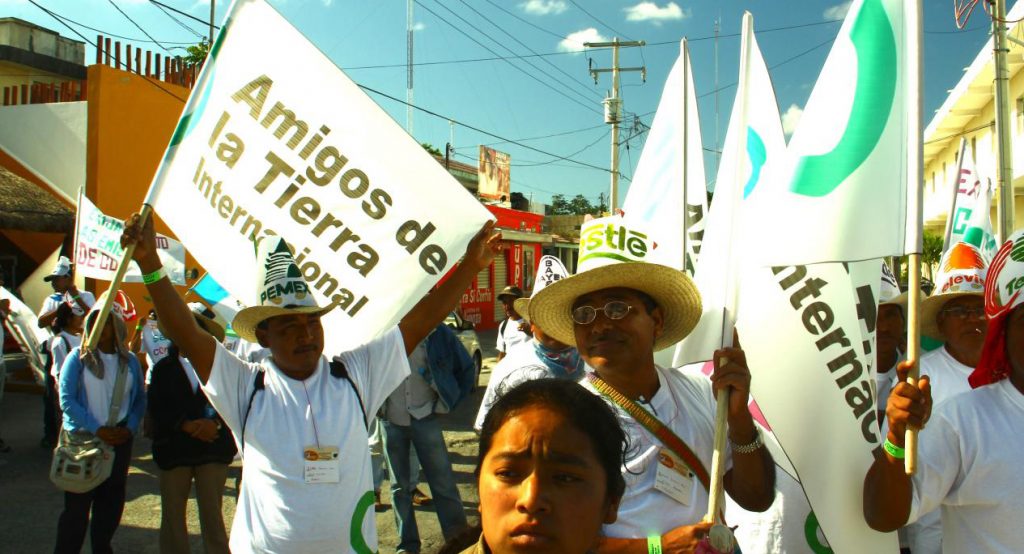Brussels – European environment ministers met today in Brussels for the first time since the UN climate conference earlier this month in Cancun, Mexico made a weak agreement to tackle climate change. The ministers acknowledged the outcomes of the Cancún talks, failing to recognise that the agreement has a dangerous lack of substance, and opens up loopholes for the EU and other developed countries to avoid their commitments.
Friends of the Earth Europe warns that although the deal kept the international climate negotiations alive, it leaves the world further away from a just and strong agreement on tackling dangerous climate change. The international grassroots environmental network is calling on the EU to strengthen its position in the coming months.[1]
The Cancún Agreement – supported by all countries except Bolivia – includes emission reduction pledges that would put the world on track for a temperature rise of up to 5°C, risking catastrophic climate change. It also risks dismantling the system of binding emission reduction targets included in the Kyoto Protocol. The deal allows developed countries to continue avoiding making cuts in their greenhouse gas emissions – by expanding the use of carbon markets and the use of international carbon offsetting. Overall, the deal means that rich industrialised countries can avoid meeting their obligations, while imposing more obligations on the developing world.
David Heller, climate campaigner with Friends of the Earth Europe, said: “The outcomes of the Cancun conference fall far short of what science and justice demand. The European Union cannot just hide behind the inaction of other rich industrialised countries. The outcomes of Cancún lack ambition in terms of emission reductions and climate finance and also open up dangerous loopholes through expanding the role of carbon markets. Despite the positive reaction given to the agreement, there is really nothing to cheer about. In the coming months, the European Union has an opportunity to strengthen its position. The EU must ensure that COP17 in South Africa at the end of 2011 brings us closer to achieving a just and strong agreement to tackle dangerous climate change.”
An important next step for the EU will be the decision to increase the EU’s target for greenhouse gas emission reductions by 2020. The EU’s current pledge to cut emissions by 20% by 2020 represents little more than ‘business as usual’ and falls far short of the scale of at least 40% domestic emission reductions that are needed to avoid catastrophic climate change. Research conducted by Friends of the Earth Europe and the Stockholm Environment Institute shows that emission reductions of at least 40% by 2020, without offsetting, are possible and affordable.[2]
In the absence of fair and legally binding aggregate emission reduction targets at EU or UN level, individual EU member states can meet their share of the climate challenge by setting legally binding targets for emission reductions through implementing strong and just national climate legislation.[3]
***
Notes:
[1] Friends of the Earth Europe’s briefing ‘The Cancun Agreement, Not worth cheering’ is available here. [2] ‘The 40% Study: Mobilising Europe to achieve climate justice’ is available here. [3] The Big Ask campaign: http://www.thebigask.eu





